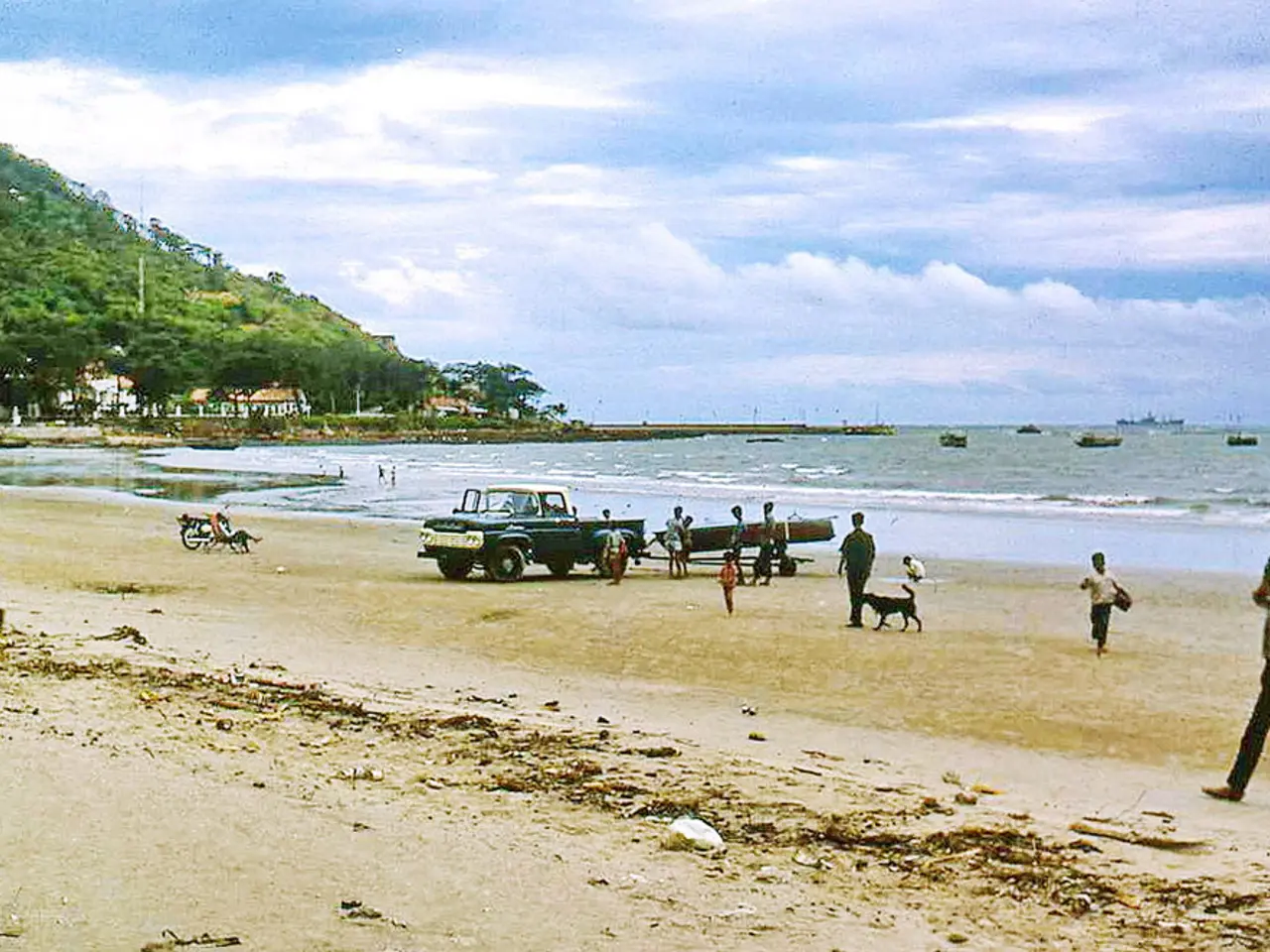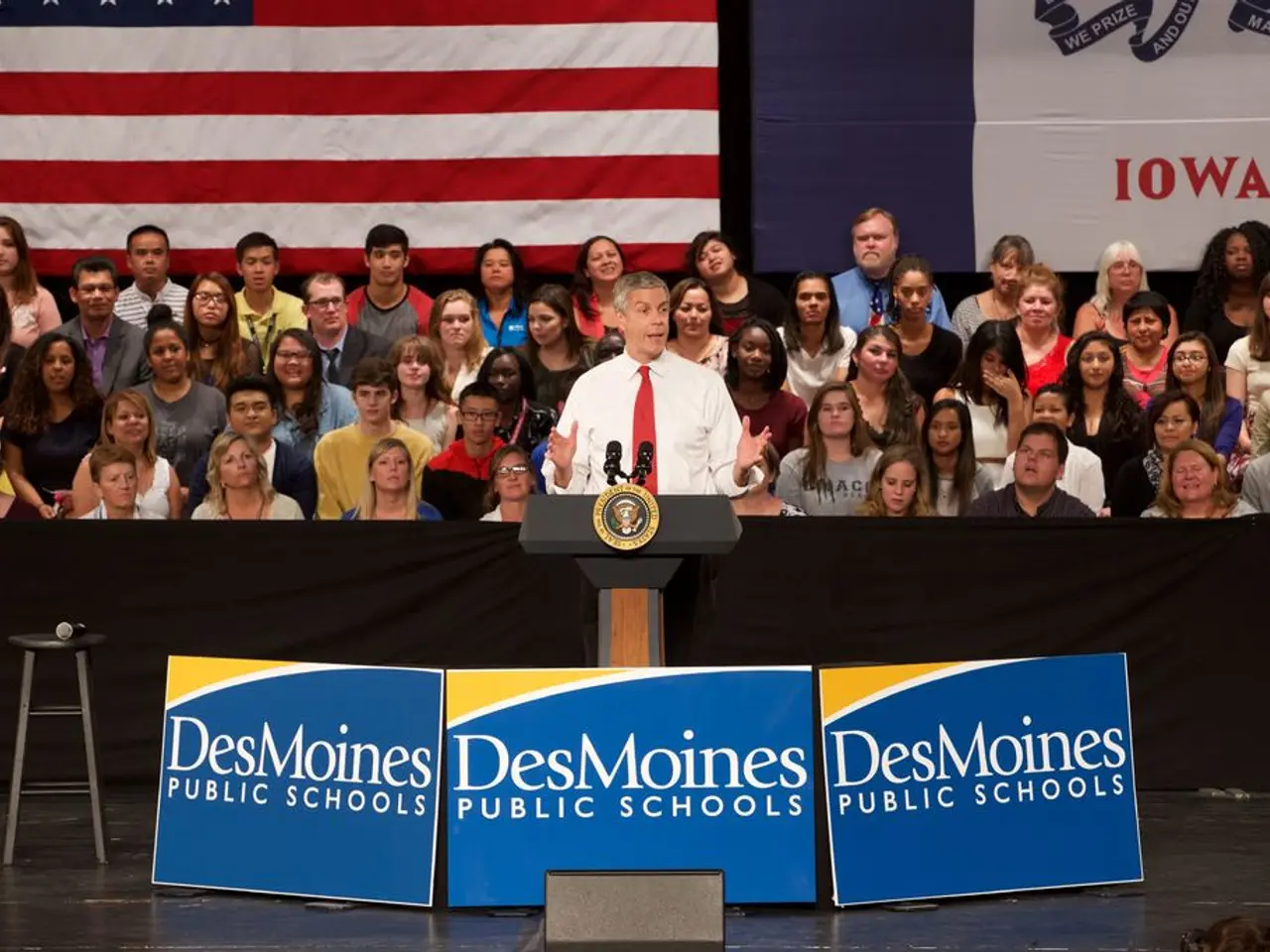Delaying elections deemed anti-democratic, goes against the spirit of July-August, according to Fakhrul
In a significant development for Bangladesh's political landscape, the National Consensus Commission, a forum involving 30 political parties, including the BNP, is actively engaged in dialogue to reach a consensus on state reforms and finalize the "July Charter" by mid to late July 2025. This charter, intended as a national agreement, pledges political parties to implement agreed reforms to strengthen democracy and governance, addressing issues like judicial decentralization, the role of the presidency, and preventing authoritarianism and corruption.
The talks, which have been ongoing, have seen the commission holding multiple sessions discussing critical issues such as Article 70 of the constitution, parliamentary reforms, appointment procedures for key officials, and women's representation. However, consensus has been reached on only a few topics, and complete agreement remains elusive, reflecting the historic difficulty in achieving political consensus in Bangladesh.
The BNP, a tested liberal democratic political party, is actively participating constructively in the Consensus Commission, engaging in all reform commissions and showing flexibility by withdrawing some original proposals to facilitate consensus. BNP Secretary General Mirza Fakhrul Islam Alamgir has confirmed the party's commitment to consensus, but he has also expressed concern over delays caused by conflicting or diverging proposals from others, which have created deadlocks in negotiations.
Fakhrul has emphasized BNP's firm opposition to any reforms they perceive as weakening the elected parliament, government, or state structure under the guise of governance reform. On the issue of the Rapid Action Battalion (RAB), a controversial law enforcement agency, a consensus has been reached on its dissolution.
Regarding the Anti-Corruption Commission (ACC) Reform Commission, BNP agreed to 46 out of 47 recommendations, with one reservation on the 29th recommendation. Similarly, BNP reviewed all 131 recommendations of the Constitutional Reform Commission and agreed to most of them, including key issues like Article 70 and the term limit of the prime minister. BNP also agreed to allocate the chairmanship of four key parliamentary standing committees and additional posts in proportion to parliamentary seats to the opposition.
In the Public Administration Reform Commission, BNP agreed to 187 out of 208 recommendations, partially agreed to five, and opposed five others. On electoral reform, BNP agreed to 141 out of 243 proposals, partially agreed to 14, and expressed conditional agreement on 64.
The process is viewed as a rare and critical opportunity to reform Bangladesh’s state system after decades of political struggle, but it faces challenges of delay and disagreement among parties. Despite these challenges, the Consensus Commission is progressing, with BNP both contributing constructively and voicing principled reservations to protect elected governance.
The BNP, one of the most active forces resisting the resurgence of autocracy and fascism, remains committed to taking charge of running the state through elections and the people's vote. The party alleges a vested quarter is carrying out a false campaign to malign BNP, and it believes the country will move towards holding the election based on discussions between Chief Adviser Muhammad Yunus and Tarique Rahman in London.
The people of the country know BNP very well and know that it has always been there and has played a leading role in achieving good things in Bangladesh. As the Consensus Commission continues its work, the hope is that a consensus can be reached, strengthening democracy and governance in the country.
- The National Consensus Commission, in which the BNP is an active participant, has been focusing on policy-and-legislation issues related to parliamentary reforms, key official appointments, women's representation, and constitutional amendments, such as Article 70, as part of their efforts to finalize the July Charter.
- In the ongoing discourse surrounding policy-and-legislation, politics, and general-news related to Bangladesh's state reforms, BNP Secretary General Mirza Fakhrul Islam Alamgir has expressed concerns about the delays in reaching consensus, particularly due to conflicting proposals from other parties, but maintains the party's commitment to the process, aiming to strengthen democracy and governance in the country.





